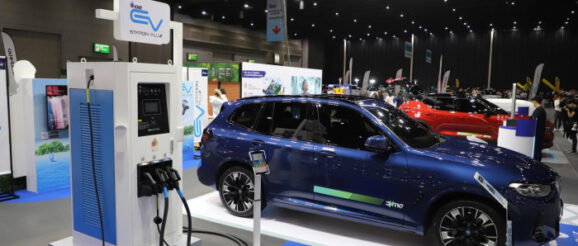Agencies unite for electric car innovation


Five state and private agencies have joined hands to develop the electric vehicle (EV) industry through more R&D projects as well as better support for local startups and small and medium-sized enterprises (SMEs) in the automotive market.
“The government wants to support Thai companies, including startups and SMEs, encouraging them to come up with technological innovations for EVs that will transform the Thai automotive industry,” said Pongpan Kaewtatip, vice-president of Thailand Science Research and Innovation (TSRI).
He was speaking as the TSRI on Thursday signed a memorandum of understanding for cooperation on EV R&D with the Electric Vehicle Association of Thailand, the Thailand Automotive Institute, the National Innovation Agency and the Program Management Unit for National Competitiveness Enhancement.
Mr Pongpan expects the collaboration will better support Thai companies and local EV-related products, improving the country’s competitiveness and using EVs to drive the economy in a sustainable way.
Greater usage of EVs can help Thailand cut carbon dioxide emissions in the transport sector.
Prime Minister Prayut Chan-o-cha vowed at the 26th UN Climate Change Conference in Glasgow in 2021 that Thailand would be more aggressive in addressing climate change, striving to reach carbon neutrality, a balance between carbon dioxide emissions and absorption, by 2050, along with a net-zero target, a balance between greenhouse gas emissions and absorption, by 2065.
Kriengsak Wongpromrat, president of the Thailand Automotive Institute, said the country has the potential to build a strong EV industry because it has a clear direction for EV development and can benefit from highly skilled workers and strong supply chains in the automotive industry.
Thailand is currently the largest car manufacturer in Asean and No.10 globally.
The National EV Policy Committee announced in 2021 it wants EVs to constitute 50% of locally made vehicles by 2030, part of an ambitious plan to make Thailand a regional EV hub.
